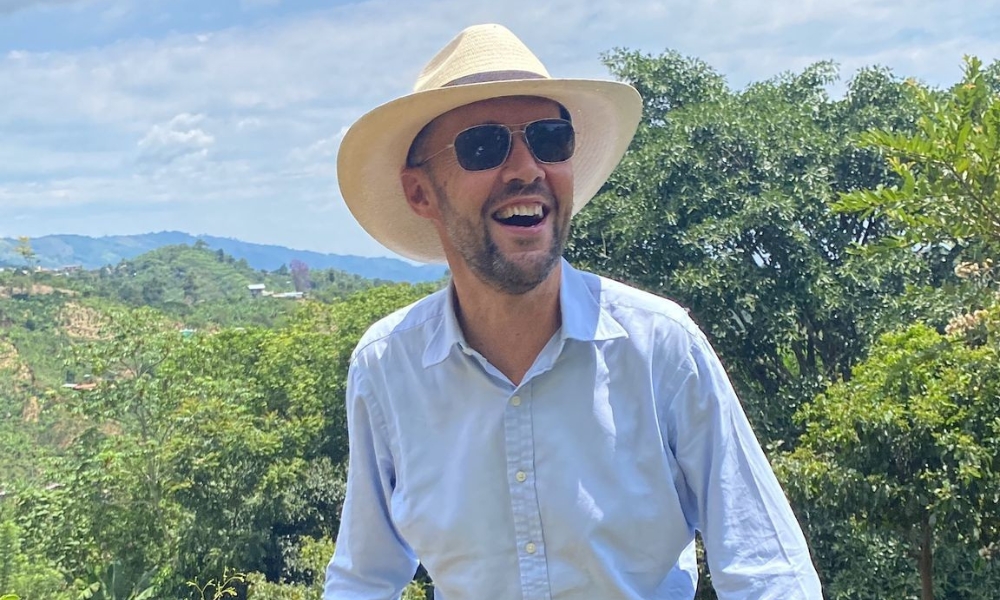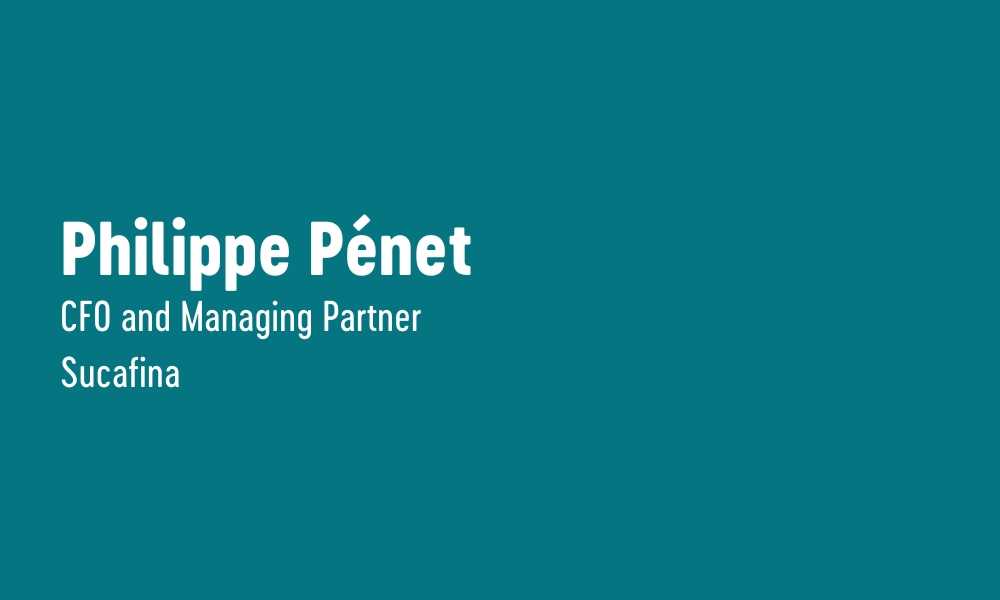

September 11, 2025 – As Managing Partner and CFO, Philippe Pénet not only helps to steer Sucafina’s financial strategy but also plays a pivotal role in advancing our Sustainability Strategy. In this Q&A, he shares how aligning our financial and sustainability priorities helps us both strengthen our business and drive positive change in the coffee value chain.
1. From a financial perspective, how do you view sustainability at Sucafina?
Sustainability at Sucafina is a strategic imperative and a long-term investment. It is, and always has been, a key pillar of Sucafina’s vision. Financially, we see it as a value driver that boosts resilience and competitiveness. But it’s more than that. For us, sustainability boils down to ensuring returns for all stakeholders, from farmers to roasters and consumers. It’s about making sure the coffee industry endures for many decades to come and brings equitable benefit to all those involved.
Operationally, sustainability helps us manage risk, attract capital and strengthen our supply chain. Like us, investors are realizing that corporate impacts on wider systems are material – they bring long-term financial, social and environmental consequences. Our financial partners understand this and support us in meeting our ESG principles. They, and we, know that customers are demanding more responsible sourcing.
By embedding sustainability into our financial strategy via sustainability-linked borrowing facilities, we’re meeting these expectations while future-proofing our business. In that sense, sustainability is both a financial safeguard and a growth opportunity – it enhances efficiency, builds trust and ultimately supports profitability.
Sucafina’s IMPACT Program is one of our key tools for delivering on our commitment to sustainability. Through IMPACT we can assess areas for investment within our stakeholder communities in a way that is verifiable and data-driven rather than just shooting in the dark.
2. How does sustainability impact your decision-making as CFO?
Financial strategy and ESG priorities are closely aligned at Sucafina. A strong ESG approach helps us secure funding, build trust with stakeholders and mitigate supply chain risks. By integrating ESG into our financial strategy, we ensure that sustainability is a fundamental part of how we do business.
Sustainability used to be viewed by some as an add-on to core business operations, but regulatory changes in the coffee industry bring important new considerations. We need to build these factors into the very fabric of our operations – this is a positive development. For example, ensuring compliance with regulatory requirements like the EU’s Corporate Sustainability Reporting Directive (CSRD) isn’t just about transparency. It’s also key to maintaining our competitive edge and financial stability.
Moreover, sustainability, when done right, enhances operational efficiency. Reducing waste, optimizing logistics and investing in regenerative farming aren’t just ‘good’, they are ‘good business’ and contribute to cost savings and improved margins in the long term.
3. Should finance teams play a bigger role in shaping sustainability strategies across industries, and if so, how?
The finance function is critical to an organization achieving its sustainability objectives – particularly for commodity merchants. Companies need to remain competitive in an increasingly complex landscape and to deliver shared value to all stakeholders. In creating long-term value, building resilience is key and finance is central to this endeavor.
4. Where does the current regulatory environment fit in with this?
While I believe market forces will continue to move the sustainability needle in the right direction, I also believe that to create durable value, some regulation is required. Relying only on market players to give the ‘sustainable push’ isn’t enough. In the current economic and geopolitical environment, where many countries are reducing their environmental ambitions, we must remain committed to our sustainability agenda. But we must also be efficient in complying with new regulations, particularly when they apply only to some regions.
5. What does sustainability mean to you personally and has your perspective evolved over time?
Sustainability is part of my DNA and close to my heart. I’m a keen Alpinist and spend all my spare time in nature. Living in Switzerland, I see daily the impact of climate change on our beautiful planet after 150 years of industrialization coupled with a demographic boom. We must do our utmost to protect our planet by promoting sustainability – particularly in our coffee supply chain, where we have the most power to drive change.
Recently, I cycled across Western Uganda with Charlotte, my wife. Nature there is unbelievable but fragile and threatened by the daily needs of a growing population. Supporting coffee growers to create more secure and sustainable livelihoods also promotes economic growth and addresses environmental concerns, bringing long-term benefits to that amazing country.
Building and sustaining a resilient company in today’s coffee sector requires collaboration, strong partnerships and future-proofing. A strong and responsive Sustainability Strategy is crucial to this.
Read Sucafina's 2024 Sustainability Report to learn more about how we’re turning ambition into action as we embed sustainability deeper into our operations and scale up our IMPACT Program.